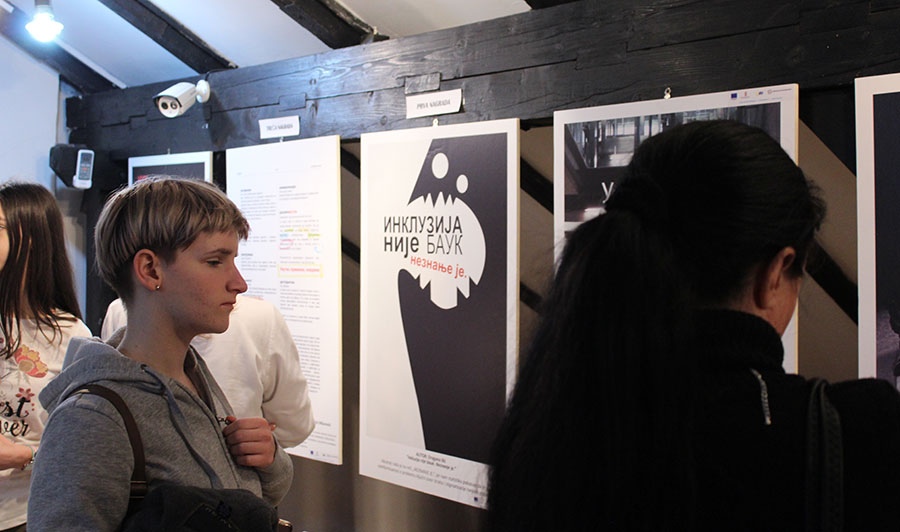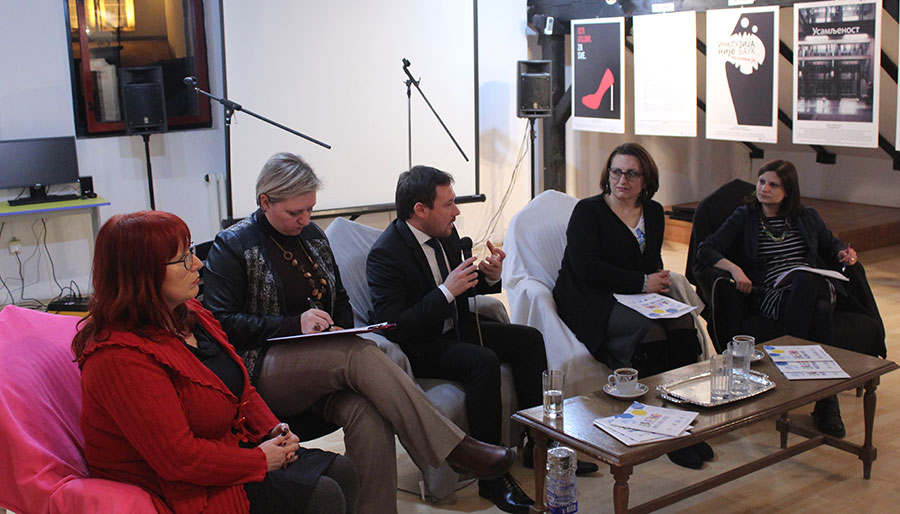“Social inclusion should be placed at the heart of each and every policy; it is something the EU pays particular attention to. Making all citizens equal in terms of education, employment and social protection is an imperative, especially here in Serbia. Therefore, relevant institutions in Serbia and the EU should work together to attain that goal,” said Head of Operations I at the EU Delegation to Serbia Nicolas Bizel in Zrenjanin where he opened a social inclusion-themed exhibition.
He described solidarity with vulnerable groups as one of EU’s fundamental values, one that should remain an everlasting priority. That’s why the EU launched “Support for Inclusive Society,” he said, citing the exhibition “Together We Can Do More” as one of its results.
The exhibition features 20 graphic prints awarded within an eponymous contest, launched by the project team and the EU Info Centre, aimed at all Serbian citizens who wanted to share their view of the issue of social inclusion. Following two exhibitions in Belgrade (Palace of Serbia and the EU Info Centre) in November and December 2017, the show was moved to Zrenjanin and mounted at Zarko Zrenjanin Public Library.
The exhibition was inaugurated by Nicolas Bizel and Library Director Milan Bjelogrlic.
“We have done so much and are very proud of results and the fact that our main beneficiaries were Serbian citizens, persons with disabilities, the elderly, children, the Roma… Although Serbian Government is the driving force of social inclusion, we should not forget the role played by municipalities, CSOs and citizens,“ Bizel said, noting that the EU will continue to support Serbia’s efforts.
 Library Director Milan Bjelogrlic said that in transitional societies, such as Serbian, the number of people in vulnerable groups tends to grow, which is why we have to work to increase social sensitisation. He said that the authors featured in exhibition hail from all over Serbia, Zrenjanin included, which, as he put it, proves that the city of Zrenjanin stands ready to engage with vulnerable groups.
Library Director Milan Bjelogrlic said that in transitional societies, such as Serbian, the number of people in vulnerable groups tends to grow, which is why we have to work to increase social sensitisation. He said that the authors featured in exhibition hail from all over Serbia, Zrenjanin included, which, as he put it, proves that the city of Zrenjanin stands ready to engage with vulnerable groups.
Bjelogrlic noted that the idea to arrange the exhibition stems from cooperation with Euteka project and added that increasing the number of such events would also increase the number of Euro-enthusiasts.
The opening was followed by a debate dedicated to social inclusion. The Centre for Social Work Director Olivera Lisica, Head of Banat School Administration Snezana Oluski Vlacic and Nicolas Bizel discussed social inclusion with high school pupils from Zrenjanin.
The exhibition “Together We Can Do More“ is mounted at the so-called Euteka corner, set up with support of the EU Delegation, within the Public Library. It runs through 20 February and will then travel to other towns in Serbia.
Also, the High School of Economics in Zrenjanin asked the organisers to lend them graphic prints featured in the exhibition in electronic form so as to discuss social inclusion with pupils. For more information about the project and the exhibition, please visit http://www.socijalnainkluzija.rs/zajedno-mozemo-vise/




